iv Published by Rowman & Littlefield International Ltd
6 Tinworth Street, London SE11 5AL
www.rowmaninternational.com
Rowman & Littlefield International Ltd is an affiliate of Rowman & Littlefield
4501 Forbes Boulevard, Suite 200, Lanham, Maryland 20706, USA
With additional offices in Boulder, New York, Toronto (Canada), and Plymouth (UK)
www.rowman.com
Copyright 2019 by Patrizia Longo
All rights reserved . No part of this book may be reproduced in any form or by any electronic or mechanical means, including information storage and retrieval systems, without written permission from the publisher, except by a reviewer who may quote passages in a review.
British Library Cataloguing in Publication Data
A catalogue record for this book is available from the British Library
ISBN: HB 978-1-7866-0813-0
PB 978-1-7866-0814-7
Library of Congress Cataloging-in -Publication Data
Names: Longo, Patrizia, author.
Title: Justice unbound : voices of justice for the 21st century / Patrizia
Longo.
Description: London ; New York : Rowman & Littlefield International, Ltd.,
[2018] | Includes bibliographical references and index.
Identifiers: LCCN 2018041039 (print) | LCCN 2018050970 (ebook) |
ISBN 9781786608154 (electronic) | ISBN 9781786608130 (cloth : alk. paper) |
ISBN 9781786608147 (pbk. : alk. paper)
Subjects: LCSH: Justice. | Social justice. | Environmental justice. |
Transitional justice.
Classification: LCC JC578 (ebook) | LCC JC578 .L67 2018 (print) | DDC
320.01/1dc23
LC record available at https://lccn.loc.gov/2018041039

The paper used in this publication meets the minimum requirements of American National Standard for Information SciencesPermanence of Paper for Printed Library Materials, ANSI/NISO Z39.48-1992.
Printed in the United States of America
Preface
xi Charles W Mills
I am deeply honoured by Patrizia Longos shout-out to me in her introduction, and delighted to think that I could have played a role in motivating her to do all the hard work necessary to put together this valuable and innovative anthology on justice, Justice Unbound .
Some personal history might be useful. As I have described in more than one autobiographical essay most recently in my 2016 Dewey Lecture at the American Philosophical Associations Central Division annual meeting I left my native Jamaica in the 1970s to go to graduate school in philosophy. I was hoping to find an illuminating intellectual framework for making sense of the debates then raging in the nation about imperialism, socialism, slavery, race, neo-colonialism, Third World underdevelopment and enduring poverty. Admittedly, I had very little background in the subject. My undergraduate degree at the University of the West Indies had been in physics, though I subsequently did a course (the only one available) with the professor who constituted the one-person philosophy unit on the Mona (Jamaica) campus. But still, I assumed that as the discipline whose boast it was to provide the Big Picture, the answers to the foundational questions we all had about the world philosophy was the natural choice.
How profoundly mistaken I was! So disillusioning, so white and unhelpful did I find the field, that more than once I considered dropping out. Imagine a Third World/Global South subject opening a book titled A Theory of Justice and being told that our starting point would be to think of society as a cooperative venture for mutual advantage, governed by rules designed to advance the good of those taking part in it. Not to mention that the concepts needed to grasp these non-ideal realities would obviously need to be significantly different than those generated from such an idealised starting point.
Yet I decided to persevere, telling myself that perhaps I could establish a space in the discipline, a beachhead, from which, along with other malcontents, I could expand the room to explore what seemed to me (and still seem all these years later) the really important issues. And though the battle is by no means over as illustrated by the ongoing rarity of anthologies like Longos it is clear that progress has been made in recent decades, if one considers the range of topics being discussed in philosophy today and compares it to the far more tightly circumscribed curricula of the 1970s.
So, what historically has the problem been? Why has philosophy been so reluctant to take up these topics? One standard answer is that the abstractness of philosophy as a discipline itself constitutes an obstacle to dealing with real-world issues of social oppression. These are empirical matters best investigated with the tools of history, sociology, political science and so forth, not a discipline committed to the investigation of ontology and being, epistemology and truth, justice and the normative.
But I have come to believe that this answer, plausible as it may initially seem, is wrong. For its tacit assumption is that abstraction cannot illuminate the structures of social oppression, and their impact on peoples social being, the actual and ideal cognitive practices of the social order, and the radical deviation of existing societies from the ideal of a just polis . If this were true, abstraction as a cognitive enterprise would then be intrinsically limited to the mapping of the ideal, not the non-ideal. And once one extracts this hidden assumption and exposes it to a critical light, it should be obvious how absurd it is. Abstraction as an xii investigative method can be fruitfully applied both to the realm of the optimal and the realm of the sub-optimal. And since we are almost always in the latter, it is precisely here that our analytical and diagnostic efforts need to be focussed, so that we can improve our understanding of the obstacles to, and thus enhance our chances of, moving closer to the former.
Once we reframe the issue in this way, the natural question then raised is: But why should philosophers historically have been so prone to abstractions of this kind? And the answer, I believe, lies in what historically in the Western tradition has been its hugely unrepresentative demographic base: class privileged, male, and (from modernity onwards, when race comes into existence) overwhelmingly white. In other words, the sub-section of the population least vulnerable to social oppression. It is the combination of demography and the disciplines abstract orientation that has led to such a deeply problematic conceptual array and correspondingly flawed repertoire of investigative practices.
I would contend that we can trace this negative material influence on the ideational across most of the sub-areas of the discipline, but let us concentrate on justice, the theme of this anthology. In the Western tradition, justice as a key subject of philosophical inquiry seems, on the terminological face of it, to go all the way back to Athens of the 5th century BCE. But in fact this appearance is misleading for both Plato and Aristotle. Justice (the standard translation of dikaiosune ) in Plato, as explored in the Republic , is not about the distribution of goods our contemporary sense but about the achievement of a particular pattern of harmony in the individual and in the polis . Justice in Aristotle, on the other hand, as in the Nicomachean Ethics , which might seem unequivocally to fit the description after all, this is the text that gives us the classic distinction between distributive and rectificatory justice still in use today turns out to be crucially different from its standard representations in the secondary literature. As the pathbreaking work of Samuel Fleischacker has demonstrated, justice for Aristotle is tied to social status, not simple humanity, and does not extend to property rights. The concept of justice with which Rawls and other contemporary philosophers are working is not traceable back to antiquity, as is standardly assumed in the profession (including by Rawls himself). Rather, it is first put forward by the French revolutionary Franois-Nel (Gracchus) Babeuf, guillotined in 1797 for his membership in the Conspiracy of the Equals. And even then, of course, it is really universal only over the sub-population of white men. Their social status becomes irrelevant; the social status of white women and people of colour does not.

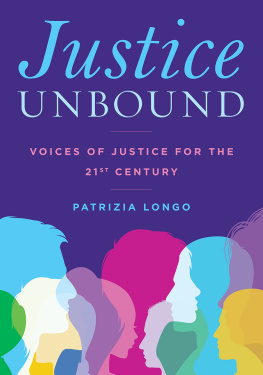

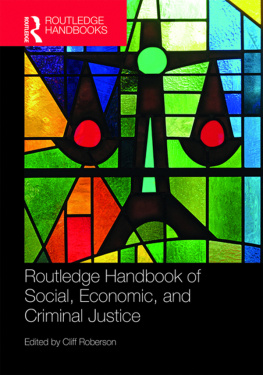
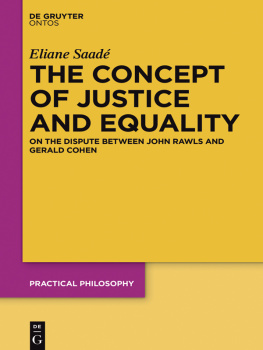
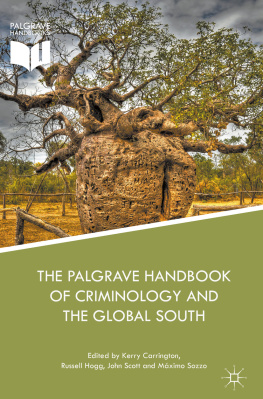

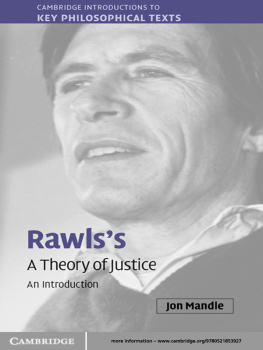
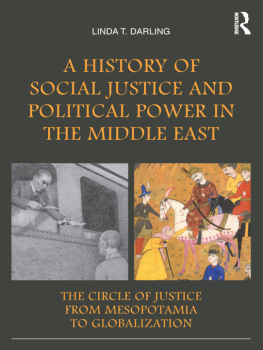

 The paper used in this publication meets the minimum requirements of American National Standard for Information SciencesPermanence of Paper for Printed Library Materials, ANSI/NISO Z39.48-1992.
The paper used in this publication meets the minimum requirements of American National Standard for Information SciencesPermanence of Paper for Printed Library Materials, ANSI/NISO Z39.48-1992.